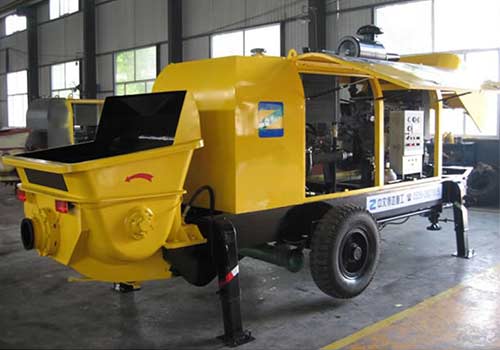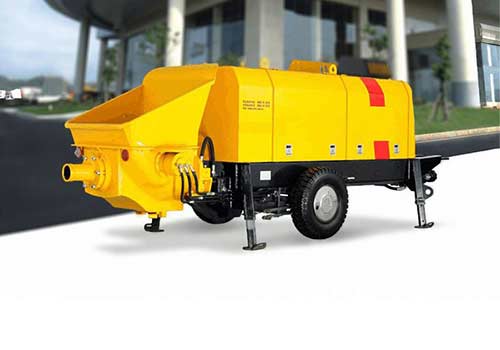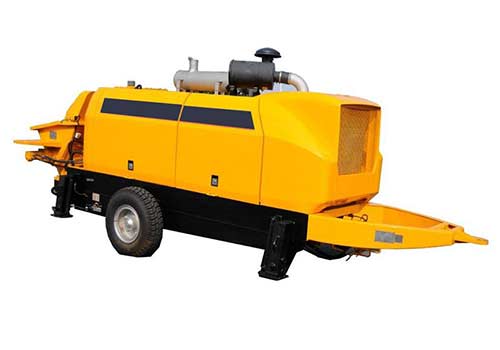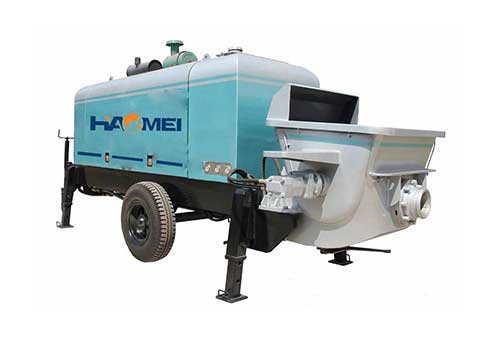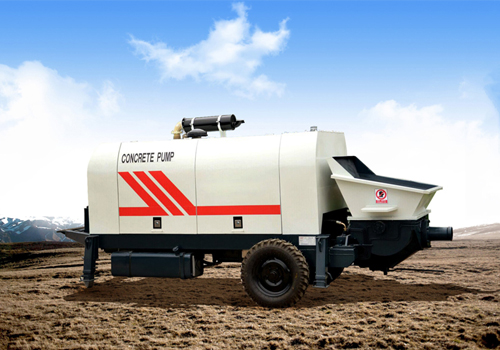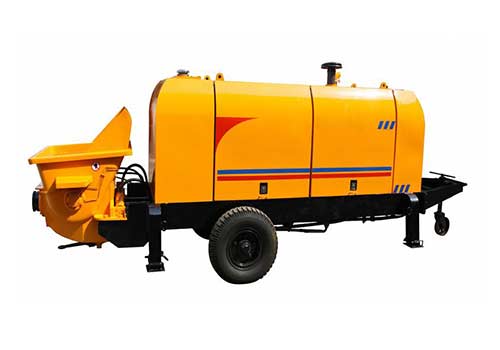Residential concrete pumping hydraulic clutch pump for wreckers
Jun 17, 2025
Residential Concrete Pumping: Discovering the Benefits of Hydraulic Clutch Pumps for Wreckers
In the ever-evolving landscape of construction technology and vehicle operation, hydraulic clutch pumps have gained prominence, particularly in the application of residential concrete pumping using wreckers. Wreckers, essential haulage vehicles in construction and roadside recovery, increasingly integrate hydraulic systems to transfer high-fluid velocity efficiently, thereby simplifying operations. Adopting hydraulic clutch pumps not only maximizes the utility of these vehicles but also effectively addresses specific practical needs in residential concrete pouring projects.
While my expertise lies in the design and manufacture of trailer-mounted concrete pumps, the concept of a "residential concrete pumping hydraulic clutch pump for wreckers" presents a fascinating, albeit niche, application. From my perspective, the challenge lies in scaling down the robust hydraulic systems we use in our larger pumps to fit the compact and often space-constrained environment of a wrecker. The demands are different too; a wrecker needs precise, controlled hydraulic pressure for lifting and towing, whereas our concrete pumps prioritize high volume and consistent flow under significant pressure. Adapting the reliability and longevity we've engineered into our industrial-grade pumps to this smaller, more demanding context would require careful consideration of component selection and system optimization – specifically around pressure control and durability under potentially abusive operating conditions.
Furthermore, the "residential" aspect adds another layer of complexity. Smaller-scale concrete pumping operations for residential use often involve less stringent regulatory requirements compared to industrial-grade concrete pumping. This could translate to potential compromises on safety features, leading to a trade-off between cost and safety. We pride ourselves on incorporating multiple fail-safes in our concrete pumps to prevent catastrophic failures, and translating that same level of robust safety to a residential wrecker-mounted system would be a design challenge requiring careful analysis of potential failure modes and their likely consequences. Ultimately, the success of such a project would hinge upon balancing the need for a compact, cost-effective system with the essential demands for safety and
Distinctive Features of Hydraulic Clutch Pumps
Hydraulic clutch pumps are designed to engage and disengage fluid flow with precision and speed, featuring essential attributes that set them apart:
Controlled Engagement: Unlike traditional methods, these clutch pumps allow operators to better modulate concrete delivery through actuated clutches that prevent the disruption of pressure changes in the hydraulic system. This trait ensures the concrete is poured steadily, enhancing work consistency.
Compactness and Efficiency: Hydraulic clutch pumps transport high pressure within a small form factor, enabling complicated maneuvers in confined residential spaces while retaining significant lifting power. Given their space-saving design, these pumps fit seamlessly into wreckers without hindering mobility or flexibility.
Versatility: These pumps are suitable for various mixes and consistencies of concrete, thus empowering wreckers to operate in diverse settings ranging from residential constructions to on-site repairs efficiently.
Durability: Built to endure harsh conditions, hydraulic pump systems offer not only corrosion resistance but also service longevity. This durability directly translates into minimized maintenance costs over the vehicle's lifespan.
Applications in Residential Concrete Pumping
The utilization of hydraulic clutch pumps within wreckers significantly streamlines residential concrete construction processes. Tasked with various functions, their applications reveal multifaceted advantages:
Precision Smooth Rotation: The harmonic functionality of hydraulic clutch pumps allows wreckers precisely to control concrete output during vital efforts like pouring foundations, driveways, and outlet installations, resulting in minimized spillage and leveling disparities.
Reduction of workers’ workload: By integrating hydraulic clutch pumps, the hefty physical effort generally associated with concrete transportation is minimized. Hence, wreckers can operate more efficiently with advanced automated support that elevates the control experience for operators.
Flexible dispatch: Wreckers equipped with hydraulic clutch pumps can diversify their service offerings for mixed-weight concrete within residential settings—from simple repairs and job site variations (such as elevation changes) to larger pouring jobs, accommodating customers with varied requirements simply and effectively.
Practical Solutions When Implementing Hydraulic Clutch Pumps
When employing hydraulic clutch pumps for residential concrete pumping in wreckers, consider some salient solutions to ensure maximized operational merits:
Matching Hydraulic Fluid Iron Costs: Oversight of hydraulic fluids suited to tune clutches optimally can save substantial expenditure and improve sustained efficiency when combined with concrete mixes.
Routine PM Checkpoints: A proactive approach mandating regular inspections on hydraulic lines, silicon gaskets, and components assure prevention against wear, yielding operational consistency.
Training Programs: Educating technicians on clutch pump mechanics and installation replicates system efficacy and unlocks the vehicle’s full construction capabilities.
Related Articles
-
52m concrete pump gas powered concrete mixer
May 06, 2025
-
Concrete mixer pump machine ready mix concrete lorry
Jun 11, 2025
-
Mini concrete pump machine concrete batching plant
Dec 18, 2024
